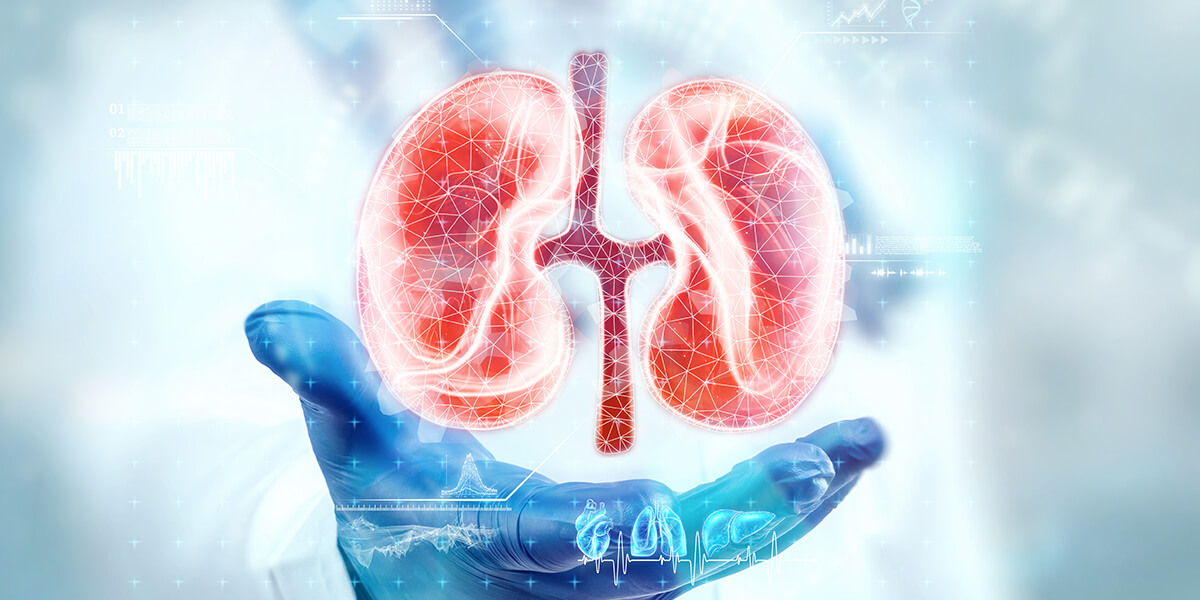


Chronic kidney disease or CKD is one of the most rapidly growing healthcare problems in the US. Almost 37 million people suffer from CKD in the United States with many who also go undiagnosed. End-stage kidney disease is one of the leading causes of death in the US. Therefore, it is important to identify if you have kidney disease now to prevent it from getting worse.
Your kidneys normally remove waste and excess fluid by excreting them through your urine. Chronic kidney disease is characterized by a progressive decrease in kidney function which can result in dangerously high amounts of fluid, electrolytes, and wastes in your body. Ignoring the symptoms of chronic kidney diseases can also lead to other health conditions like anemia, loss of appetite, depression, and a weaker immune system.
Chronic kidney disease occurs when a disease or condition disables kidney function, causing kidney damage to worsen over time. It can be caused by several conditions, including:
The following factors can raise your risk of chronic kidney disease:
If kidney damage proceeds slowly, signs and symptoms of chronic renal disease might take time to emerge. Depending on the severity of your condition, symptoms of CKD can include:
The signs and symptoms of renal illness are often vague and can result from other illnesses as well. So, it's better to consult a doctor without delay.
If you have signs or symptoms of kidney disease, make an appointment with your doctor. Early identification may help in preventing kidney disease from progressing.
Your doctor may order urine and blood tests to diagnose whether you have kidney disease and discuss the risk of it progressing. Consult your doctor to see if these tests are essential for you.
To lower your chances of having kidney disease, you may do the following:
Follow the guidelines while using over-the-counter medications: Follow the directions on the box while using nonprescription pain medicines such as aspirin, ibuprofen, and acetaminophen (Tylenol, and others).
Maintain a healthy weight: If you're already at a healthy weight, maintain it by being physically active on most days of the week. See a nutritionist or weight expert about appropriate weight loss solutions if you need to reduce weight.
Don't smoke: Cigarette smoking can harm your kidneys and aggravate pre-existing renal problems. If you smoke, talk to your doctor about quitting methods. Support groups, therapy, and a professionally-controlled nicotine withdrawal program can all assist you in quitting.
Manage your medical problems: If you have any diseases or conditions that put you at risk for chronic kidney disease, consult your doctor to get them under control. Ask your doctor about tests to detect kidney impairment.
Kidney problems can be treated in a variety of methods, including:
Medical Management
There are a variety of medicines and procedures that may be required to treat or prevent the progression of kidney disease.
Kidney Transplantation
A kidney transplant is a procedure in which a patient with end-stage kidney disease is replaced with the kidney of another person.
Dialysis
Dialysis is a treatment that can remove toxins and fluid in people whose kidneys are no longer functioning. Hemodialysis uses a machine to clean your blood, whereas peritoneal dialysis cleans your blood by filtering it through the peritoneum (lining of your abdomen).
Kidney disease can make your life difficult. At Kidney Physicians of Indiana, our mission is to take care of every aspect of your kidney disease. Contact us today to schedule an appointment for a customized plan for your chronic kidney disease treatment.